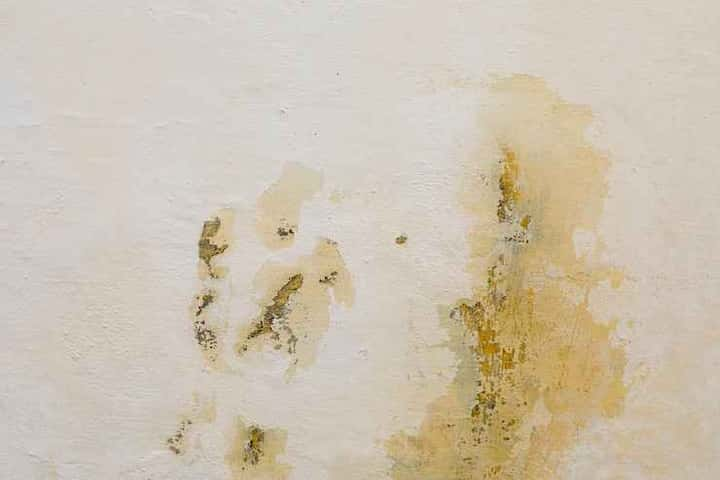Mold Remediation and Removal in Arlington: A Comprehensive Guide
The presence of mold in homes and buildings in Arlington is a growing concern that affects residents’ health and structural integrity. This comprehensive guide offers in-depth analysis and insights on mold remediation and removal, exploring its significance in Arlington and providing valuable information critical for homeowners and property managers. The content adheres to Google’s E-A-T guidelines, ensuring expertise, authoritativeness, and trustworthiness throughout.
The Significance of Mold Issues in Arlington
Arlington, with its humid subtropical climate, presents a fertile ground for mold growth, particularly in low-ventilation areas like basements and attics. Mold contamination not only depreciates property value but also threatens health, causing allergies, respiratory issues, and other ailments. Understanding mold dynamics in Arlington forms the basis for effective remediation strategies.
Understanding Mold: Causes and Risks
Mold thrives in areas with excessive moisture, and in Arlington, the high humidity levels during the fall and spring seasons contribute significantly to mold incidences. Mold spores, if not controlled, can spread quickly, colonizing on surfaces and within walls. The risks extend beyond structural damage to severe health implications, including asthma attacks and chronic sinus infections.
The Mold Remediation Process
Effective mold remediation involves a systematic approach that includes evaluation, containment, air filtration, cleaning, and restoration. Engaging professional services ensures thorough inspection and adherence to safety guidelines.
Mold Removal Arlington offers expert solutions tailored to the unique challenges of Arlington’s environment.
Remediation Technologies and Methods
Advancements in remediation technologies, such as HEPA filtration and antimicrobial treatments, enable more effective mold control. Additionally, dehumidification and mold-resistant building materials are critical in minimizing mold recurrence. These technologies, when applied expertly, enhance the remediation process's efficiency and reliability.
Regulations and Compliance in Arlington
Hygiene standards and property maintenance regulations in Arlington enforce strict compliance for mold remediation. It's essential for property owners to be proactive in addressing mold problems, adhering to local ordinances that ensure health and safety.
Mold Encapsulation Services is compliant with Arlington's codes, offering encapsulation solutions to manage mold effectively.
Challenges in Mold Remediation
Remediation in Arlington faces challenges such as identifying hidden mold and dealing with cross-contamination. Addressing these challenges requires expertise and the use of advanced diagnostic and remediation techniques. Skilled professionals, equipped with the right tools and knowledge, are crucial for overcoming these obstacles efficiently.
Cost Implications of Mold Removal
The cost of mold remediation varies based on the extent of mold spread, the size of the affected area, and the materials required for restoration. In Arlington, the average cost ranges from $500 to $6,000, depending on complexity. There are instances where costs exceed this range, particularly for extensive mold infestations that impact larger properties.
Preventative Measures Against Mold
Taking proactive steps to prevent mold, such as installing dehumidifiers, ensuring proper ventilation, and regular maintenance checks, can mitigate risks and reduce future remediation costs. Educational programs and community initiatives in Arlington aim to increase awareness on mold prevention strategies for residents and businesses alike.
The Future of Mold Remediation in Arlington
Trends in technology and increasing awareness are shaping the future of mold remediation in Arlington. Innovative approaches and greater community involvement will enhance the effectiveness and accessibility of mold control measures, ensuring healthier living environments. The collaboration of local government, industry experts, and residents is crucial for sustainable solutions.
Key Takeaways: A Forward-Looking Perspective
Mold remediation in Arlington is not just a necessity but a critical component of maintaining public health and safety. With expert guidance from services like
Mold Removal Arlington, homeowners and businesses can navigate the challenges posed by mold effectively. Ongoing education, prevention, and technological advancements hold the key to minimizing mold's impact in the region.
FAQs About Mold Remediation and Removal in Arlington
What are the common signs of mold infestation in a property?
Common signs of mold infestation include persistent musty odors, visible mold spots on walls or ceilings, water stains or discoloration, and peeling or bubbling paint. Residents may also experience health symptoms such as coughing, sneezing, or skin irritation. It's crucial to conduct a thorough inspection if these signs are present to confirm mold growth and assess its extent.
How quickly should mold be addressed after detection?
Mold should be addressed as soon as it's detected. Mold can spread rapidly, especially in high-humidity environments, leading to more severe contamination and health issues. Quick action prevents further damage and reduces remediation costs. Consult professional mold remediation services in Arlington promptly to evaluate and manage the situation effectively.
Is mold remediation a DIY task, or should professionals handle it?
While minor mold issues may be addressed with DIY solutions, professional intervention is recommended for effective and safe remediation, especially for extensive mold problems. Experienced professionals possess the necessary tools, expertise, and safety protocols to manage mold without risking health or exacerbating the issue. In Arlington, engaging certified mold remediation experts ensures compliance with local regulations and optimal results.
What are the health risks associated with mold exposure?
Mold exposure can cause various health issues, including allergic reactions, respiratory problems, and skin irritation. Those with asthma, compromised immune systems, or mold allergies are particularly susceptible. Prolonged exposure without remediation may increase the risk of severe respiratory conditions and chronic sinus infections. It's important to mitigate these risks by addressing mold promptly and ensuring a mold-free environment.
How can I prevent mold growth in the long term?
Preventing mold growth entails maintaining low indoor humidity levels, ensuring proper ventilation, and repairing leaks promptly. Using mold-resistant materials during construction and conducting regular property inspections are also effective preventive measures. Community awareness programs in Arlington emphasize the importance of proactive maintenance and education in reducing mold risks.
